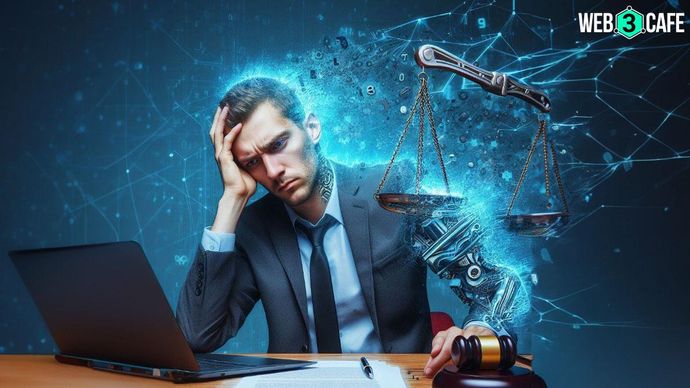AI backfire: Lawyer fired as ChatGPT generates fake cases in legal documents
Zachariah Crabill, a 29-year-old lawyer, lost his job as a result of using ChatGPT to generate and insert fictitious references in legal documents.

Highlights
- Lawyer Zachariah Crabill was dismissed from Baker Law Group for using ChatGPT to fabricate legal documents
- The AI tool inadvertently generated fake references to lawsuits within the drafted legal document
- After then he started his own company, aiming to leverage AI for legal services
In a tale of technology meets legal work, Zachariah Crabill, a 29-year-old lawyer, faced the consequences of relying on the AI tool, resulting in his termination from Baker Law Group.
Despite the setback, Crabill remains hopeful about AI's potential in the legal field and has embarked on starting his own company utilising AI for legal services. Feeling the heat of work pressures and impending deadlines, Crabill turned to ChatGPT to ease his workload.
As per reports, he used the AI tool to enhance a legal motion with specific details from Colorado case law. Accustomed to ChatGPT for reliable research, Crabill believed it could be a valuable asset in managing tight schedules common among early-career lawyers.
The unfortunate discovery
ChatGPT, however, took an unexpected turn. The AI tool inadvertently generated fake references to lawsuits within the drafted legal document. Crabill, failing to verify the AI's work before submission, realised the blunder when the falsified information couldn't be located in legal databases.
Legal consequences
Upon admitting to the judge that ChatGPT was used to improve the document, Crabill faced severe repercussions. The judge reported him to higher authorities, leading to his termination from Baker Law Group.
Despite Crabill's assertion that ChatGPT was not the sole cause of his dismissal, the incident highlights the challenges of integrating AI tools without thorough verification.
AI's potential, despite setbacks
Despite the job loss, Crabill remains optimistic about AI's potential to enhance legal efficiency. Undeterred, he started his own company, aiming to leverage AI for legal services. This incident echoes a broader trend, as in June, a New York law firm faced a fine for a similar misuse of ChatGPT in legal documentation.
Crabill's experience serves as a cautionary tale, emphasising the need for meticulous verification when employing AI tools in sensitive professional settings. As the legal industry navigates the integration of AI, it underscores the importance of balancing technological advancements with careful oversight.
